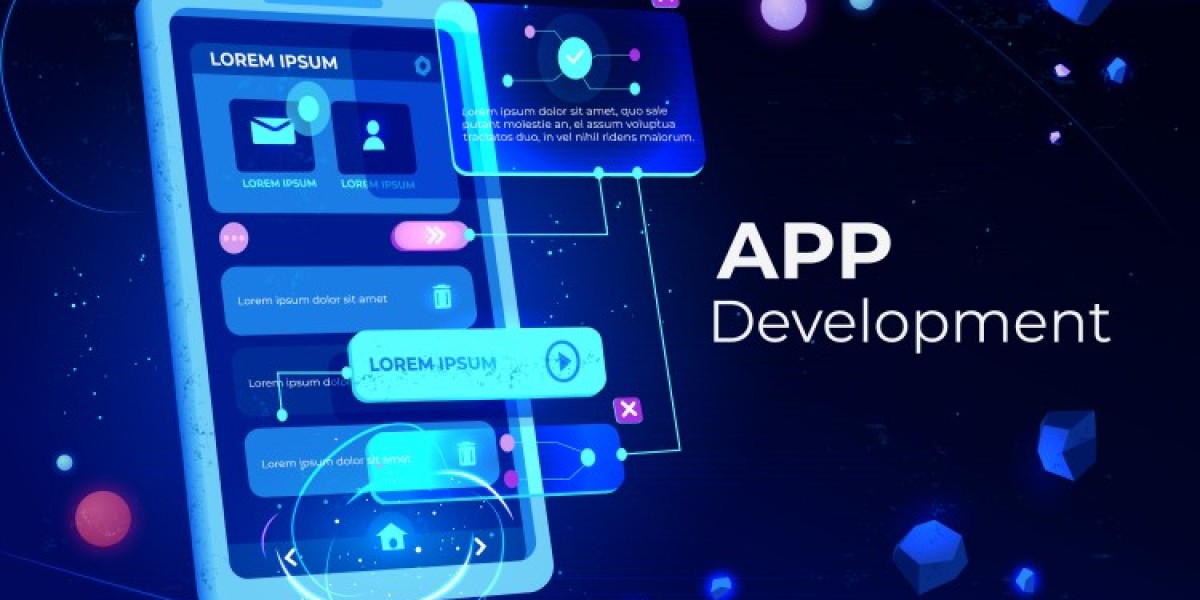In today’s fast-paced digital landscape, businesses are constantly looking for ways to stand out and engage their audience. One of the most effective strategies is through mobile applications, with Android leading the market in terms of global users. If your business is looking to establish a strong mobile presence, custom Android app development can provide the edge you need. In this article, we'll explore why opting for custom Android app development is the right choice for your brand and how it can lead to significant business growth.
Why Android?
Android dominates the mobile operating system market, holding over 70% of the global share. This widespread adoption makes it a critical platform for businesses that want to reach a broad audience. Whether you're a small startup or a well-established company, tapping into Android’s massive user base can greatly enhance your brand's visibility.
However, with millions of apps on the Google Play Store, it’s not enough to just have an app. What sets successful businesses apart is their ability to offer unique, personalized experiences to users. This is where custom Android app development comes into play.
What is Custom Android App Development?
Custom Android app development involves creating a mobile application tailored specifically to meet the needs of your business and target audience. Unlike off-the-shelf solutions, which provide generic features, custom apps are designed from the ground up with your brand’s goals and users’ preferences in mind.
This approach offers flexibility, allowing your app to include features that align with your business model. It can cater to various industries such as e-commerce, healthcare, education, or finance. From design to functionality, everything is built to resonate with your brand identity.
Benefits of Custom Android App Development
1. Tailored User Experience
One of the primary benefits of custom Android app development is the ability to create a user experience (UX) that aligns perfectly with your audience’s expectations. An app built specifically for your brand will focus on enhancing user satisfaction, leading to higher engagement and better customer retention. By offering an intuitive, seamless UX, you ensure that your app remains a favorite among users.
2. Scalability
A generic app may not be able to support your business growth over time. However, custom Android app development allows for future scalability. As your business expands, your app can easily be updated with new features and improved performance capabilities. This ensures that your mobile solution grows alongside your business without facing performance bottlenecks.
3. Enhanced Security
When dealing with sensitive customer data, security is paramount. Off-the-shelf applications often come with limited security features that are vulnerable to breaches. With custom Android app development, you can integrate the latest security protocols tailored to your specific industry requirements, ensuring that your customers’ data is protected. From encryption to multi-factor authentication, custom apps provide superior data security.
4. Better Integration with Existing Systems
Businesses often have unique workflows and systems that need seamless integration with new tools. A custom Android app development approach allows your app to integrate smoothly with your existing software, databases, and tools. Whether it’s integrating with a CRM, ERP, or other backend systems, a custom app ensures uninterrupted workflows and enhanced operational efficiency.
5. Competitive Advantage
In a crowded marketplace, standing out is crucial. By leveraging custom Android app development, your business can offer features and functionalities that are unique, giving you a competitive edge. An app tailored specifically for your brand helps differentiate your business from competitors who rely on standard, off-the-shelf solutions.
The Development Process
The process of custom Android app development typically involves several key stages:
- Discovery and Requirement Gathering: This is where the development team understands your business goals, target audience, and the features you need. It’s crucial to have a detailed plan in place to ensure the app aligns with your objectives.
- Design and Prototyping: The next stage involves creating wireframes and prototypes that showcase the app's layout and navigation. This is an essential step in ensuring the app offers a user-friendly experience.
- Development: The app’s backend and frontend are developed in this stage. The development team builds the app from scratch, focusing on delivering the features, design, and functionalities discussed in the planning phase.
- Testing: Rigorous testing is conducted to identify any bugs or issues. During this phase, developers focus on making sure the app performs smoothly across various Android devices.
- Deployment and Maintenance: Once the app is ready, it’s deployed on the Google Play Store. Post-launch, the development team monitors the app’s performance and provides updates and maintenance to ensure it remains functional and up-to-date.
Conclusion
Investing in custom Android app development is an excellent strategy for businesses looking to create unique, user-centric applications. Whether you're aiming to improve customer engagement, enhance operational efficiency, or boost brand visibility, a custom app can deliver the flexibility, scalability, and security needed to succeed in the competitive digital marketplace.
By choosing custom Android app development, you gain complete control over the design, functionality, and future updates of your mobile solution. This level of customization enables you to offer a personalized experience that not only meets your customers’ needs but also strengthens your brand identity. In a world where mobile applications have become a key driver of business success, a custom solution is an investment that will undoubtedly pay off in the long run.









